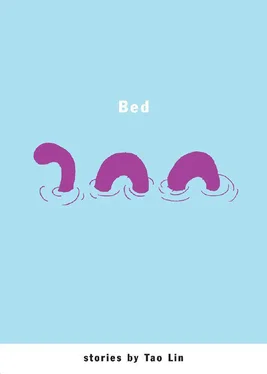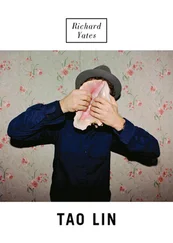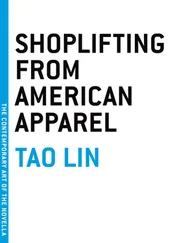Love is a Thing on Sale for More Money than There Exists
This was the month that people began to suspect that terrorists had infiltrated Middle America, set up underground tunnels in the rural areas, like gophers. During any moment, it was feared, a terrorist might tunnel up into your house and replace your dog with something that resembled your dog but was actually a bomb. This was a new era in terrorism. The terrorists were now quicker, wittier, and more streetwise. They spoke the vernacular, and claimed to be philosophically sound. They would whisper into the wind something mordant and culturally damning about McDonald’s, Jesus, and America — and then, if they wanted to, if the situation eschatologically called for it, they would slice your face off with a KFC Spork.
People began to quit their jobs. They saw that their lives were small and threatened, and so they tried to cherish more, to calm down and appreciate things for once. But in the end, bored in their homes, they just became depressed and susceptible to head colds. They filled their apartments with pets, but then neglected to name them. They became nauseated and unbelieving. They did not believe that they themselves were nauseated, but that it was someone else who was nauseated — that it was all, somehow, a trick. A fun joke. “Ha,” they thought. Then they went and took a nap. Sometimes, late at night and in Tylenol-cold hazes, crouched and blanket-hooded on their beds, they dared to squint out into their lives, and what they saw was a grass of bad things, miasmic and low to the ground, depraved, scratching, and furry — and squinting back! It was all their pets, and they wanted names. They just wanted to be named!
Life, people learned, was not easy. Life was not cake. Life was not a carrot cake. It was something else. A get-together on Easter Island. You, the botched clone of you, the Miami Dolphins; Coco-Puffs, paper plates, a dwindling supply of clam juice. That was life.
The economy was up, though, and crime was down. The president brought out graphs on TV, pointed at them. He reminded the people that he was not an evil man, that he, of course, come on now — he just wanted everyone to be happy! In bed, he contemplated the abolition of both anger and unhappiness, the outlawing of them. Could he do that? Did he have the resources? Why hadn’t he thought of this before? These days he felt that his thinking was off. Either that, or his thinking about his thinking was off. He began to take pills. Ginseng, Ginkoba. Tic-Tacs. It was an election year, and the future was very uncertain. Leaders all over the globe began to go on TV with graphs, pie charts, and precariously long series of rhetorical questions.
This was also the month that Garret and Kristy stopped experimenting with caffeine. They had, in their year and a half together, tried all the coffees, cut back to tea, tried tea and coffee together — thinking that tea caffeine was different than coffee caffeine — tried snorting tea, swallowing coffee beans, tea cakes, and had then gone back to coffee.
Now they were using caffeine pills. One per day, like a vitamin — tacitly, with only a little shame.
They went to college in Manhattan and lived together in Brooklyn, where the sky was a bleeding-mushroom gray and the pollution seemed to rise directly off the surface of things — cars, buildings, the ground — like a foul heat, a kind of gaseous, urban mirage.
Garret would occasionally glimpse something black and fizzy moving diagonally across the reddening sky. He often suspected that The Future Was Now. Was the future now? Or was it coming up still? He had seen all the apocalypse movies of the 90’s, and all the signs were here: the homeless people rising up and walking around, the businessmen entering the parks and sitting down, sitting there all day, leaving late at night— why?; the focus on escape — people always talking about escaping to California, Hawaii, Florida; and the stalled technology, how all that was promised — underwater houses, hover cars, domed cities on the moon, robots that would shampoo your hair and assure you that everything was going to be okay — was not here, and would probably never be here. They had lied. Someone had lied.
Garret’s dreams were increasingly of normal things that, because of their utter messagelessness, had very natural-seeming undertones of foreboding and impending doom to them. In one dream, Garret was in the shower. He soaped himself, dropped the soap, picked up the soap, put it adjacent the shampoo, and read the shampoo bottle. “Pert Plus,” it said.
“I’m thinking about taking a year off,” Kristy said. She was graduating a year early due to summer classes and AP credits. “To figure out who I am. I’m not a basketball star. I’m not Jane Goodall. I’m not Mary Stuart Masterson.”
It was a Friday morning and they were in bed.
“I always think Jane Goodall is the ape’s name,” Garret said. “But it’s not. It’s the name of the blonde lady.”
Garret had a psychology lecture today. They decided to meet after, at four, at the deli place.
“The deli with the red thing,” Garret said. “Four. Don’t be late.”
“I’ll be there at three-fifty.”
“I know you’re going to be late,” Garret said. Then he left the apartment. Why was Kristy always late? It was winter and raining. The city seemed a place under-siege, an undersea metropolis with a grade-school planetarium dome for a sky, newspapery and cheap, folding down like something soaked. The subway smelled of urine, and some of the streets had long pools of green radioactive sludge on them. Garret went and sat in the deli, which had a red awning. He disliked the word awning. The complete, incomplete word of it. Yawning; they just took the Y off. What was happening? His view was of the sidewalk, a craggy area of Washington Square Park, and some scaffolding. He sat there for a long time, until the deli owner came out from in back to tell him that he couldn’t just sit there all day.
Garret nodded and stood. “Sorry,” he said.
“Move to Hawaii,” said the deli owner. He patted Garret on the back. “Take a jet airplane to Hawaii and be happy.”
“Okay,” Garret said. He bought a pre-made salad, an orange drink, and a sugar cookie. He thought that he wouldn’t go to class. Jesus loves you, he then thought. But Jesus isn’t in love with you. He thought about that for a while. Awning, he thought. Gnawing. Woodpecker.
Kristy showed up around five. She ran in, her hair wet.
“I forgot you said four,” she said. “I was thinking that I was supposed to leave at four.”
They walked to Union Square, leaning against one another like a weary, wounded people. It was not raining anymore, but the sky was still gray. Kristy asked how Garret’s class went. Garret shrugged. They didn’t speak anymore after that. They began to sweat, as it was a warm winter. Global warming had finally arrived, maybe. For a long time it was on its way, it was coming, it was imminent, Hollywood made a movie about it, and now it was probably here.
They went in all the stores, then for coffee, and then Garret started making half-hearted jokes about the terrorists. “What if the terrorists opened their own store … and sold bad things?” Garret said. “What would they sell?” he said.
It sometimes seemed to him that for love to work, it had to be fair, that he should tell only half the joke, and she the other half. Otherwise, it would not be love, but something completely else — pity or entertainment, or stand-up comedy. “Well? What they would sell,” Garret said. “I can’t do everything in this relationship.” Sometimes, recently, coffee would make him sleepy and unreasonable and begrudging. He began to remember all the times that Kristy was late, all the times she promised not to be late anymore.
Читать дальше












